TAKE THE FIRST STEP.
WE WILL DO THE REST.
Community leaders and citizens have the power to create a culture of peace. We believe in creating the tools and examples needed to make it easy for the community to create and leave their legacy of peace.

On 14 March 2016, HWPL proclaimed the Declaration of Peace and Cessation of War (DPCW), which was drafted with the participation of international law experts from 15 countries. This declaration, comprised of 10 articles and 38 clauses, aims to restore the spirit that served as the basis for the establishment of the United Nations and to achieve sustainable peace by promoting the universal values of the global community. The DPCW embodies the principles and measures for preventing and resolving conflicts and sustaining a peaceful global society.


Our initiatives aim to show the DPCW in action to equip our communities to build a culture of peace from individual to community level.
10 Articles and 38 Clauses of the Declaration of Peace and Cessation of War (DPCW)
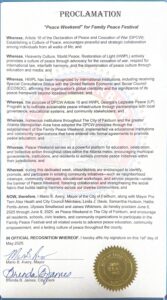
The City of Fairburn encourages peaceful collaboration as written in the DPCW and declare Peace Weekend on June 6th - June 8th
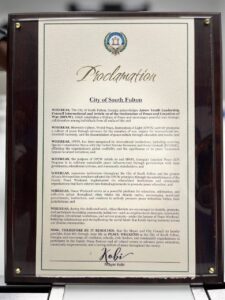
The City of South Fulton proclaimed June 6–8, 2025, as Peace Weekend, honoring the Arrow Youth Leadership Council, HWPL, and recognizing the Declaration of Peace and Cessation of War (DPCW) as a vital international peace document.
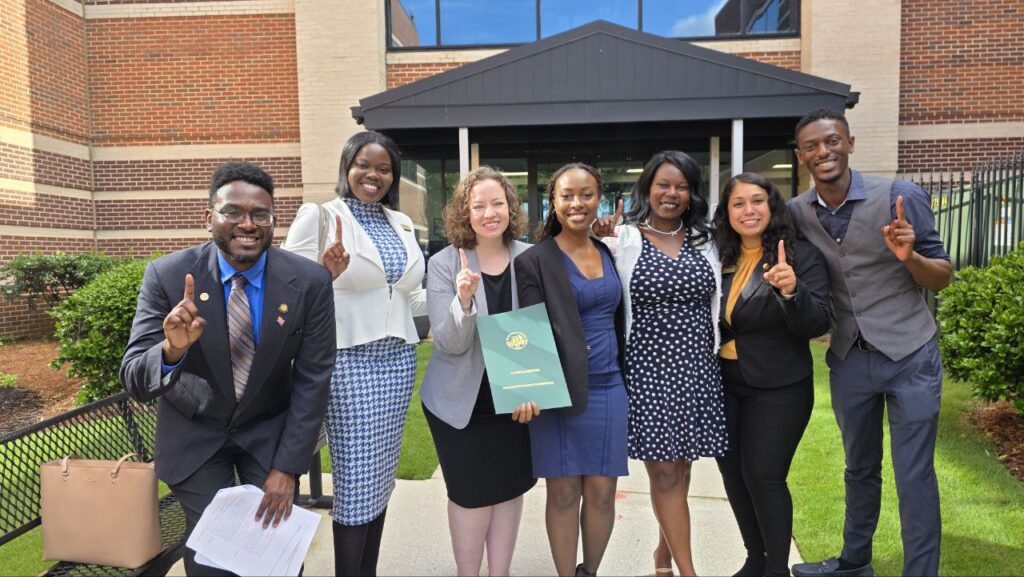
DeKalb County officially declared itself a County of Peace through a formal proclamation. This historic recognition was made possible through the dedicated efforts of Heavenly Culture, World Peace, Restoration of Light (HWPL), whose ongoing peace initiatives and community engagement continue to inspire a culture of nonviolence, unity, and global harmony.
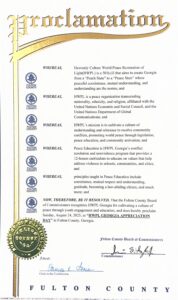
Fulton County Declares August 24, 2025 as HWPL Georgia Appreciation Day
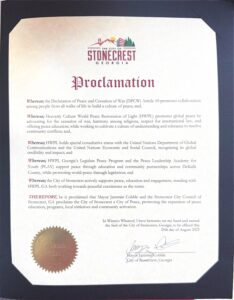
The City of Stonecrest promotes collaboration of DPCW and declares Stonecrest as a City of Peace
All States and individuals shall contribute to the promotion of a culture of peace.
Peace education shall be implemented in schools, universities, and public institutions.
Civil society organizations shall actively participate in peacebuilding initiatives.
Governments shall encourage cultural exchange programs that promote peace and mutual respect.
All forms of discrimination, including racial, ethnic, and religious discrimination, shall be eliminated.
States shall promote interfaith and intercultural dialogue to foster understanding.
The role of women and youth in peacebuilding shall be recognized and encouraged.
Media shall contribute to the promotion of peace through ethical journalism.
Economic and social development programs shall be implemented to prevent conflict.
The international community shall work collectively to prevent war and ensure lasting peace.
International disputes shall be resolved through legal and diplomatic means.
States shall strengthen international institutions to ensure compliance with international law.
Any State violating international peace agreements shall be subject to legal consequences.
Judicial mechanisms for resolving disputes shall be promoted and expanded globally.
The press shall have the freedom to report information without censorship, as long as it does not incite violence.
All media organizations shall uphold the principles of truth, impartiality, and social responsibility.
All individuals shall have the freedom to practice, change, or abstain from any religion or belief.
No State or individual shall use force, coercion, or discrimination in matters of religion or belief.
Religious leaders and communities shall promote peace, tolerance, and mutual understanding.
States shall work toward general and complete disarmament under effective international supervision.
The production, stockpiling, and proliferation of weapons of mass destruction shall be strictly prohibited.
All States shall reduce military expenditures and redirect resources toward peace-oriented programs.
Every people has the right to self-determination, including the right to freely determine their political status.
No State shall suppress a people’s right to self-determination through force.
All measures shall be taken to support non-violent processes for achieving self-determination.
States shall conduct their international relations based on mutual respect and peaceful cooperation.
States shall prevent and suppress acts of aggression through collective measures
No State shall engage in the use of armed force except in self-defense or under UN authorization.
States shall abstain from the threat or use of force in any manner inconsistent with the purposes of the United Nations.
States shall settle their disputes through peaceful means, refraining from armed conflict.
All States shall respect and protect the sovereignty, territorial integrity, and independence of other States.